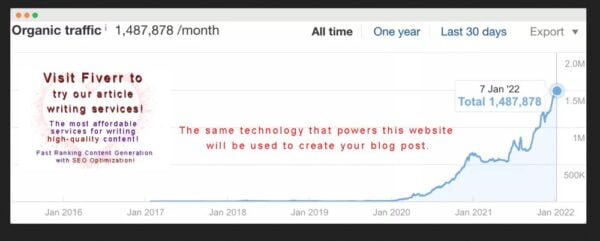The Secrets of Search Engine Rankings: How to Boost Your Website to the Top
Have you ever wondered why some websites appear at the top of your search results while others are buried deep down the list? The answer lies in the mysterious world of search engine rankings.
This article will demystify the concept of search engine rankings and provide you with actionable strategies to climb up the search results ladder.

Table of Contents
Understanding Search Engine Rankings
![]()
Search engine rankings are the order in which websites are displayed when a user types a query into a search engine like Google, Bing, or Yahoo. These rankings are determined by complex algorithms that take into account a multitude of factors to decide which websites are most relevant to the user’s search query.
Why are these rankings so important? Simply put, higher rankings can lead to more visibility, increased traffic, and potentially more business for your website. With the majority of users rarely venturing past the first page of search results, securing a top spot can be crucial for online success.
How to Improve Search Engine Rankings
![]()
Improving your website’s search engine rankings may seem like a daunting task, but there are several strategies you can employ to boost your visibility:
- Keyword Optimization: Identify and use relevant keywords throughout your website’s content, titles, and meta descriptions to signal to search engines what your site is about.
- Quality Content: Create valuable, informative, and engaging content that addresses the needs and interests of your audience.
- Mobile-Friendliness: Ensure your website is optimized for mobile devices, as search engines favor sites that provide a good user experience on smartphones and tablets.
- Page Load Speed: Improve your website’s loading times, as faster sites are preferred by both users and search engines.
- Backlinks: Build a network of high-quality backlinks from reputable websites to establish your site’s authority and trustworthiness.
By focusing on these key areas, you can start to climb the search engine rankings and make your website more visible to potential visitors.
Better Search Engine Rankings Through User Experience
![]()
Search engines aim to provide the best possible results for their users, which means they favor websites that offer a great user experience. Here are some ways to enhance your site’s user experience:
- Easy Navigation: Design your website with a clear structure and intuitive navigation to help users find what they’re looking for quickly.
- Engaging Design: Use an attractive and professional design to make a strong first impression and keep users on your site longer.
- Relevant Content: Regularly update your site with fresh and relevant content to keep users coming back for more.
By prioritizing the user experience, you not only satisfy your visitors but also signal to search engines that your website is a valuable resource, which can lead to better search engine rankings.
Guaranteed Search Engine Rankings: Myth or Reality?
![]()
Many companies promise guaranteed search engine rankings, but the truth is that no one can guarantee a top spot on search engine results pages (SERPs). Search engine algorithms are constantly evolving, and what works today may not work tomorrow. Instead of looking for guarantees, focus on best practices and continuous improvement to increase your chances of ranking well.
Boost Search Engine Rankings with Technical SEO
![]()
Technical SEO involves optimizing the technical aspects of your website to help search engines crawl and index your site more effectively. Here are some technical SEO tips:
- Secure Your Site: Use HTTPS encryption to secure your website and protect user data.
- Structured Data: Implement structured data (schema markup) to help search engines understand the content on your pages.
- XML Sitemaps: Create an XML sitemap to list all the pages on your site, making it easier for search engines to find and index your content.
- Fix Broken Links: Regularly check for and fix broken links, which can harm your site’s credibility and user experience.
By addressing these technical elements, you can boost your search engine rankings and make your site more accessible to search engines and users alike.
Case Studies and Success Stories
![]()
Real-world examples can provide valuable insights into what works in the realm of SEO. Look for case studies that detail how businesses have improved their search engine rankings through specific strategies. Success stories often highlight the importance of a well-rounded SEO approach that includes content creation, technical optimization, and user experience improvements.
Measuring Your Search Engine Rankings Progress
![]()
To know if your efforts are paying off, it’s essential to track your search engine rankings over time. Use tools like Google Analytics and Search Console to monitor your rankings, traffic, and other key metrics. By analyzing this data, you can refine your strategies and focus on what’s working best for your website.
Frequently Asked Questions
![]()
What factors affect search engine rankings?
Search engine rankings are influenced by various factors including website content quality, keyword relevance, site speed, mobile-friendliness, backlinks, user engagement, and technical aspects of SEO like proper use of tags and site structure.
How do I improve my website’s search engine ranking?
To improve your website’s ranking, focus on creating high-quality, relevant content, using keywords strategically, optimizing your site for mobile devices, improving site speed, acquiring reputable backlinks, and following SEO best practices.
What is SEO?
SEO stands for Search Engine Optimization. It is the practice of increasing the quantity and quality of traffic to your website through organic search engine results.
How long does it take to see results from SEO?
SEO is typically a long-term strategy. Results can take anywhere from a few weeks to several months or even years, depending on the competition in your industry and the effectiveness of your SEO strategies.
Can I do SEO on my own?
Yes, you can perform basic SEO on your own with research and dedication. However, complex strategies often require the expertise of an SEO professional or agency.
What are keywords in SEO?
Keywords are words or phrases that users type into search engines to find information. They are crucial for SEO because they help determine when your website should appear in search results.
How important are backlinks for SEO?
Backlinks, which are links from other websites to yours, are vital for SEO as they signal to search engines that others vouch for your content. High-quality, relevant backlinks can significantly improve your rankings.
What is on-page SEO?
On-page SEO refers to optimizations you make on your own website, such as content improvements, HTML tag enhancements, and image optimization. It’s all about making your site more user-friendly and relevant to search queries.
What is off-page SEO?
Off-page SEO involves actions taken outside of your own website to impact your rankings within search engine results pages. This primarily includes building backlinks but can also involve social media marketing and brand mentions.
What is the difference between white hat and black hat SEO?
White hat SEO refers to the use of optimization strategies that focus on a human audience and follow search engine rules and policies. Black hat SEO involves deceptive practices that can get a site higher rankings quickly but are against search engine guidelines and can result in penalties.
Conclusion: The Journey to Better Search Engine Rankings
![]()
Improving your search engine rankings is a journey, not a destination. It requires ongoing effort, adaptation to changing algorithms, and a commitment to providing value to your users. By focusing on quality content, user experience, and technical SEO, you can increase your visibility in search results and attract more traffic to your site. Remember, there are no shortcuts or guarantees in SEO, but with the right approach, you can achieve better search engine rankings and the many benefits that come with them.


